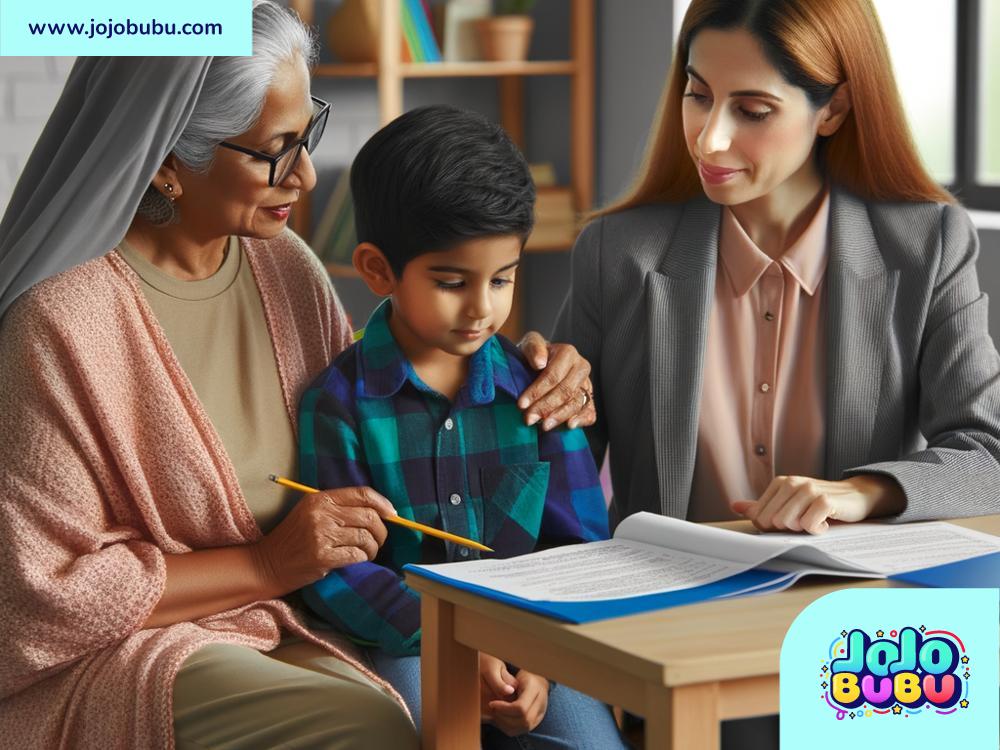Advocating in Schools for Your Grandchildren: Tips for Grandparents
As a grandparent, you likely share a deep bond with your grandchildren. You want what’s best for them, especially when it comes to their education. Schools play a big role in children’s growth, but sometimes kids face challenges that aren’t easy to navigate on their own. That’s where you come in—you can advocate for your grandchildren to help them succeed in school.
Advocating means speaking up, asking questions, and ensuring your grandchildren get the support they need. If you’re wondering how to get started, here are some simple steps to help you become their best champion.
Why Advocating Matters
Every child is unique. Some students excel in school without much help, while others may struggle with learning, friendships, or even emotional challenges. Schools often do their best to meet the needs of all students, but they don’t always notice every issue right away. As a grandparent, you may see something that needs attention, whether it’s grades dropping, discomfort in social situations, or a need for extra learning resources.
Advocating ensures your grandchildren have the tools, support, and encouragement to thrive. Your voice can make a difference, especially if their parents are overwhelmed or if you’re stepping in as a primary caregiver.
Starting the Conversation
If you suspect your grandchild needs help at school, the first step is talking to them. Ask open-ended questions to understand more about their experiences. Keep the conversation positive and supportive, so they feel safe sharing their concerns. You can say:
- “How do you feel about school? Is anything bothering you?”
- “What’s your favorite and least favorite part of the school day?”
- “Do your teachers or classmates make you feel happy or nervous?”
Once you have some information, reach out to their parents and discuss what you’ve learned. If you’re legally responsible for your grandchild, you may need to speak directly to their school. Never hesitate to meet with teachers, counselors, or the principal.
Building Relationships with Schools
To advocate effectively, it’s important to build positive relationships with your grandchild’s school staff. Teachers, counselors, and administrators are your partners in supporting your grandchild. Here are some ways to approach these conversations:
-
Set Up a Meeting: Contact the school and request a meeting with your grandchild’s teacher or counselor. Be clear about your concerns and ask for an appropriate time to talk.
-
Stay Calm and Polite: Approach the meeting with respect and kindness. You might feel emotional, especially if you think your grandchild is struggling, but staying calm helps you find solutions faster.
-
Be Specific: Share what you’ve noticed and ask about your grandchild’s progress. For example, you might say, “My granddaughter has been struggling with reading at home. How is she doing in class?”
-
Listen to Their Perspective: Teachers see your grandchild in a different setting, and their observations are valuable. Work together to identify possible solutions.
-
Ask Questions: If you’re unsure about something, don’t hesitate to ask. For example, “What resources are available to help them improve in math?” or “How can we work together to address bullying?”
Understanding Educational Support
Schools often provide extra help for students who need it. If your grandchild is facing academic, social, or emotional challenges, ask about programs or resources. Here are some examples:
- Tutoring: Many schools offer tutoring or after-school programs to help kids catch up academically.
- Special Education Services: If your grandchild has a learning disability or other challenges, they may qualify for special education support under programs like an Individualized Education Plan (IEP) or a 504 Plan.
- Counseling: Some schools have counselors who can help with emotional well-being, social skills, or conflicts with peers.
- Gifted Programs: If your grandchild thrives in certain subjects, they may benefit from advanced learning opportunities.
The school staff can guide you through these options and help determine what’s available for your grandchild.
Communicating with Teachers Regularly
After your initial meeting, stay involved! Communication shouldn’t stop at one conversation. Follow up with your grandchild’s teacher or counselor:
- Check in periodically to ask about your grandchild’s progress.
- Attend parent-teacher conferences, even if you’re a grandparent.
- Don’t wait for problems to arise—be proactive about building relationships with the school.
When you are engaged, teachers and administrators are more likely to listen and support your concerns.
Supporting Learning at Home
Advocating for your grandchild isn’t just about meeting with the school—home plays a big role too. You can help them learn and grow outside the classroom by:
- Creating a calm, quiet space for homework.
- Encouraging reading every day, whether it’s books, comics, or magazines your grandchild enjoys.
- Limiting screen time so they can focus on schoolwork and hobbies.
- Practicing patience and showing positivity about school, even if your grandchild struggles.
Remember to celebrate progress and encourage your grandchild to keep trying—even small victories mean a lot.
Be Patient and Persistent
Advocating in schools can sometimes feel slow. You might not see changes right away, and solving challenges may take time. That’s okay! Don’t give up. When you stay patient, persistent, and positive, you’ll find solutions that work for your grandchild.
By advocating, you show your grandchild they’re loved and supported. Your efforts can boost not only their educational success but also their confidence and happiness. And that is the best gift you can give—your love, attention, and belief in them.
So, reach out, ask questions, and build partnerships with their school. You’re their strongest advocate, and they’re fortunate to have you!

